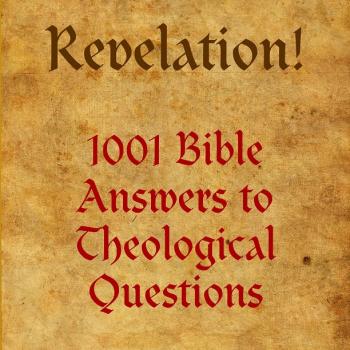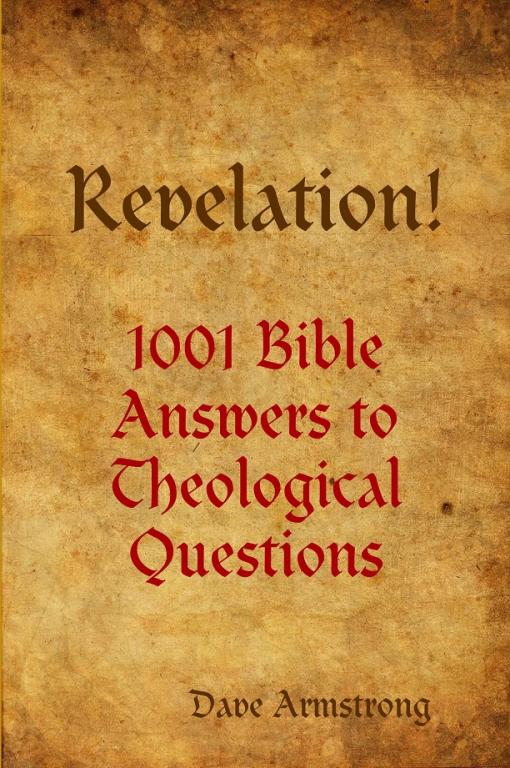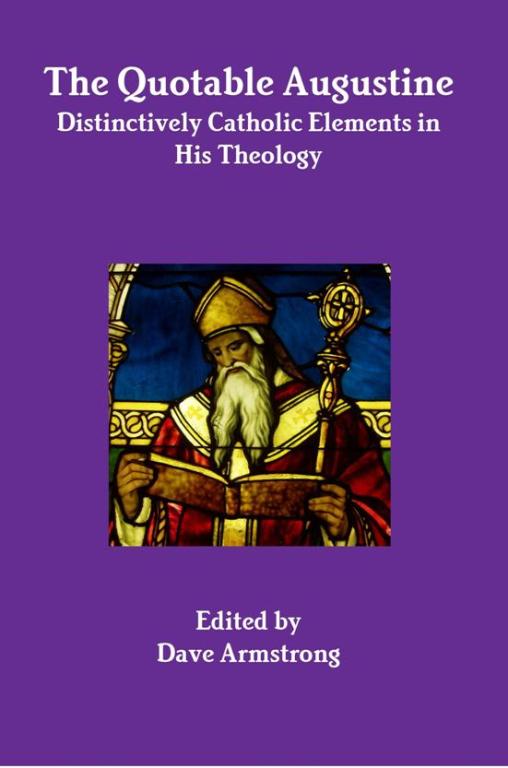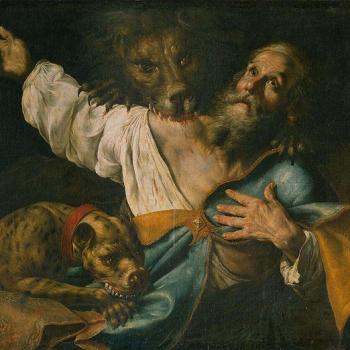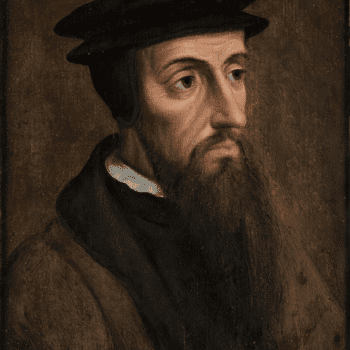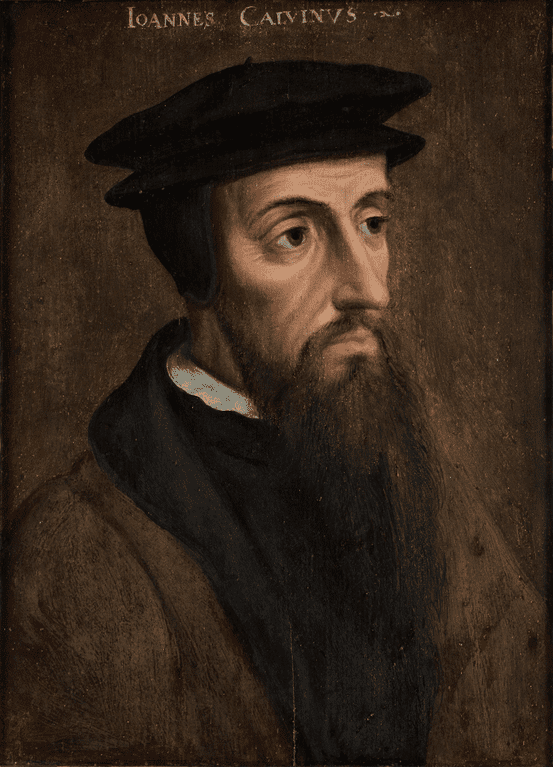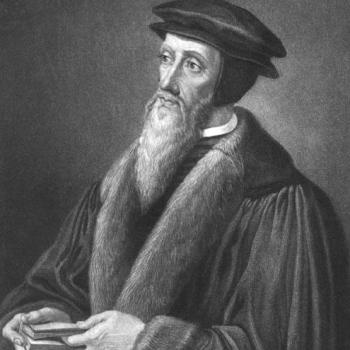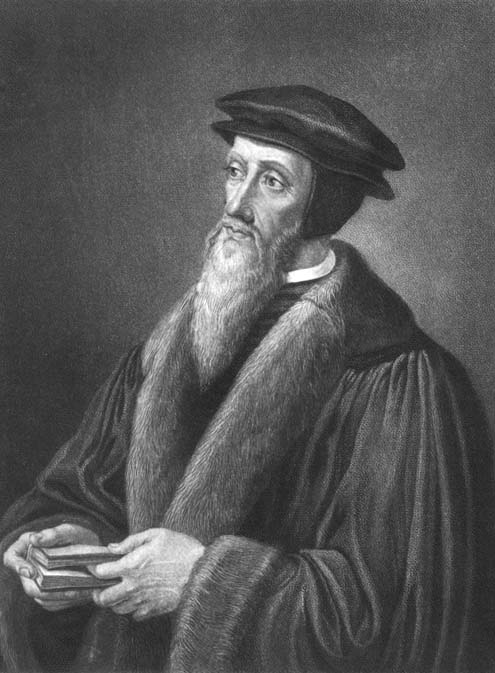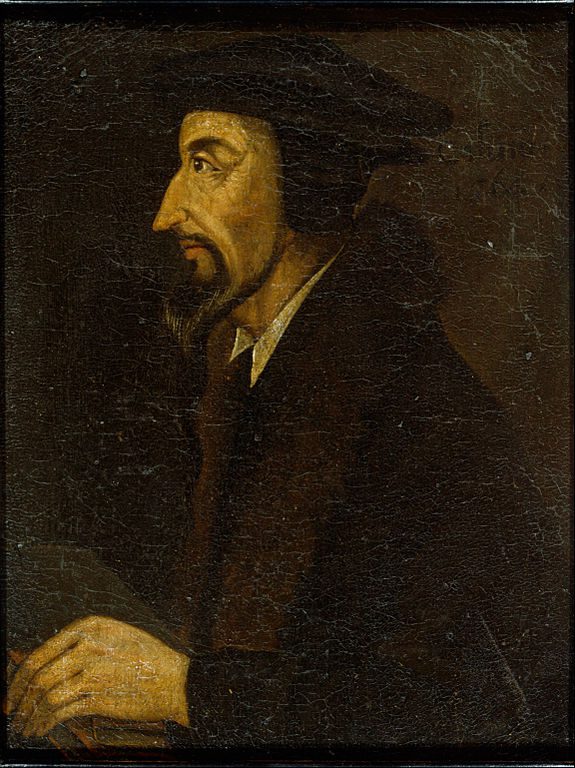Matthew 19:29; 25:34-46; Mark 16:16; Luke 6:35; Acts 10:34-35

On 10-8-24, I published my article, Bible vs. “Faith Alone”: 100 Proofs (100 Bible Passages On Catholic Justification, Sanctification, and Faith + Works [from 22 out of 27 NT Books]: All Disproving Protestant “Faith Alone” Soteriology). Later, I got the idea of inquiring as to how John Calvin (1509-1564), one of the two the most influential founders of Protestantism, along with Martin Luther, would react to these passages in his Commentaries (and then offering my rebuttals). My approach here will be the same as in my book, The Catholic Verses: 95 Bible Passages That Confound Protestants (Aug. 2004). I explain my method in that book’s Introduction:
I shall now proceed to offer a critique of common Protestant attempts to ignore, explain away, rationalize, wish away, overpolemicize, minimize, de-emphasize, evade clear consequences of, or special plead with regard to “the Catholic Verses”: ninety-five biblical passages that provide the foundation for Catholicism’s most distinctive doctrines. . . .
I will assert – with all due respect and, I hope, with a minimum of “triumphalism” — the ultimate incoherence, inadequacy, inconsistency, or exegetical and theological implausibility of the Protestant interpretations, and will submit the Catholic views as exegetically and logically superior alternatives.
The dates of Calvin’s various Commentaries are as follows:
1540 Romans
1548 All the Epistles of Paul
1551 Hebrews, and the Epistles of Peter, John, Jude, and James
1551 Isaiah
1552 Acts of the Apostles
1554 Genesis
1557 Psalms
1557 Hosea
1559 Twelve Minor Prophets
1561 Daniel
1562 Joshua
1563 Harmony of Exodus, Leviticus, Numbers, and Deuteronomy
1563 Jeremiah
1563 Harmony of Three Gospels and Commentary on St John
I use RSV for biblical citations. Calvin’s words will be in blue.
A complete listing of this series will be on my web page, John Calvin: Catholic Appraisal, under the subtitle: “Bible vs. ‘Faith Alone’ vs. John Calvin”.
*****
Matthew 19:29 And every one who has left houses or brothers or sisters or father or mother or children or lands, for my name’s sake, will receive a hundredfold, and inherit eternal life. (cf. Mk 10:29-30)
After having raised the expectation of his followers to the hope of a future life,
Indeed, Jesus said in v. 28: “you who have followed me will also sit on twelve thrones . . .”
he supports them by immediate consolations, and strengthens them for bearing the cross. For though God permit his people to be severely afflicted, he never abandons them, so as not to recompense their distresses by his assistance. And here he does not merely address the apostles, but takes occasion to direct his discourse generally to all the godly. The substance of it is this: Those who shall willingly lose all for the sake of Christ, will be more happy even in this life than if they had retained the full possession of them; but the chief reward is laid up for them in heaven.
Jesus expresses the thought, “If you do x, you inherit eternal life.” That’s much different from “if you believe in me and have faith, you receive possibility of having a connection to salvation. They don’t fit the “plan” and so they are either totally ignored, or else this obvious aspect is simply not addressed. Calvin noted that Jesus went beyond the disciples to “all the godly.”
But Calvin does a clever and not altogether honest thing. Rather than assert that their reward is heaven itself, as the passage does (“everyone who has [done any of these self-sacrificing things] . . . will . . . inherit eternal life”), he claims that “the chief reward is laid up for them in heaven”: that is, the person who does these things will be more greatly rewarded in heaven (the differential rewards that we all agree upon). But that’s not what the text teaches. It doesn’t say that the reward in heaven is a “hundredfold.” The “hundredfold” is referring to this life. The cross-references in Mark and Luke make this absolutely clear:
Mark 10:30 . . . receive a hundredfold now in this time, houses and brothers and sisters and mothers and children and lands, with persecutions, and in the age to come eternal life.
Luke 18:30 . . . receive manifold more in this time, and in the age to come eternal life.”
This is utterly contrary to the doctrine of “faith alone.” Calvin alludes to rewards in this life (“will be more happy even in this life”) but he doesn’t acknowledge that heaven itself is a reward, too. To sum up, the text (most undeniably in Mark and Luke) is in the following logical form: “whoever does x, will receive y and z“: as opposed to, “whoever does x, will receive y as part of z“.
Calvin simply ignores the central teaching of the text itself. And that won’t do. If we are serious about following the Bible as God’s inspired revelation, we must follow it wherever it leads, rather than trying to force-fit it into our preconceived theology, when in fact it does not harmonize with the latter (what is called eisegesis, or “reading into” a biblical text things that aren’t present). It’s an even more serious error when one is “messing around” with the words of Our Lord Jesus Himself.
Matthew 25:34-35, 41-43, 46 Then the King will say to those at his right hand, ‘Come, O blessed of my Father, inherit the kingdom prepared for you from the foundation of the world; [35] for I was hungry and you gave me food, I was thirsty and you gave me drink, I was a stranger and you welcomed me, . . . [41] Then he will say to those at his left hand, `Depart from me, you cursed, into the eternal fire prepared for the devil and his angels; [42] for I was hungry and you gave me no food, I was thirsty and you gave me no drink, [43] I was a stranger and you did not welcome me, naked and you did not clothe me, sick and in prison and you did not visit me.’ . . . [46] And they will go away into eternal punishment, but the righteous into eternal life.”
We must remember Christ’s design; for he bids his disciples rest satisfied now with hope, that they may with patience and tranquillity of mind look for the enjoyment of the heavenly kingdom; and next, he bids them strive earnestly, and not become wearied in the right course. To this latter clause he refers, when he promises the inheritance of the heavens to none but those who by good works aim at the prize of the heavenly calling. But before speaking of the reward of good works, he points out, in passing, that the commencement of salvation flows from a higher source; for by calling them blessed of the Father, he reminds them, that their salvation proceeded from the undeserved favor of God. Among the Hebrews the phrase blessed of God means one who is dear to God, or beloved by God. . . . There can be no doubt, therefore, that Christ, in describing the salvation of the godly, begins with the undeserved love of God, by which those who, under the guidance of the Spirit in this life, aim at righteousness, were predestined to life. [my bolding]
I think he’s putting too much stock in the notion that “blessed of God” could only mean “one of the elect.” After all, we have this passage, too:
Luke 6:20 And he lifted up his eyes on his disciples, and said: “Blessed are you poor, for yours is the kingdom of God.”
Does that mean they were all saved and predestined for heaven? It can’t, since Judas was among them at this time (he was mentioned along with all the others in 6:14-16). Jesus also said the following:
Matthew 26:24-25 . . . woe to that man by whom the Son of man is betrayed! It would have been better for that man if he had not been born.” [25] Judas, who betrayed him, said, “Is it I, Master?” He said to him, “You have said so.”
John 17:11-12 And now I am no more in the world, but they are in the world, and I am coming to thee. Holy Father, keep them in thy name, which thou hast given me, that they may be one, even as we are one. [12] While I was with them, I kept them in thy name, which thou hast given me; I have guarded them, and none of them is lost but the son of perdition, that the scripture might be fulfilled.
Therefore, it follows inexorably that just because one is pronounced to be “blessed” by Jesus, or even that they possess “the kingdom of God”: it doesn’t always or necessarily mean that they are saved, let alone predestined to be saved. I think this is simply Calvin’s way of trying to avoid the plain “Catholic” implications of the text. In context, “blessed of my Father” refers to those who are actually about to enter eternal life. That said, it doesn’t follow, even if they are predestined (Catholics agree that all saved persons were predestined by God), that works had nothing to do with it. We say that both things are relevant to salvation, because Jesus said so (more plainly here than almost anywhere else in Scripture, out of the one hundred examples I have compiled).
It’s Jesus (not some pope or other Catholic) Who said that the ones who went to heaven at the Last Judgment did so, “for” [synonym of “because” here] they did various works. And the damned went to hell “for” they refused to do the same good works. That’s causation, any way we look at it. We’re happy to agree that the works go hand-in-hand with grace and faith; no problem. It’s what the Bible teaches. But Protestants want to remove works from the equation altogether, and that is what is blatantly unbiblical. They amazingly exclude from consideration the very thing that Jesus singled out in this passage, in Matthew 19:29, and earlier in Matthew 19, in His discussion with the rich young ruler (discussed solely and at length in my previous installment).
“Please Hit ‘Subscribe’”! If you have received benefit from this or any of my other 5,000+ articles, please follow my blog by signing up (with your email address) on the sidebar to the right (you may have to scroll down a bit), above where there is an icon bar, “Sign Me Up!”: to receive notice when I post a new blog article. This is the equivalent of subscribing to a YouTube channel. My blog was rated #1 for Christian sites by leading AI tool, ChatGPT: endorsed by influential Protestant blogger Adrian Warnock. Actually, I partner with Kenny Burchard on the YouTube channel, Catholic Bible Highlights. Please subscribe there, too! Please also consider following me on Twitter / X and purchasing one or more of my 55 books. All of this helps me get more exposure, and (however little!) more income for my full-time apologetics work. Thanks so much and happy reading!
***
To this also relates what he says shortly afterwards, that the kingdom, to the possession of which they will be appointed at the last day, had been prepared for them from the beginning of the world. For though it may be easy to object, that the reward was laid up with a view to their future merits, any person who will candidly examine the words must acknowledge that there is an implied commendation of the grace of God. Nay more, Christ does not simply invite believers to possess the kingdom, as if they had obtained it by their merits, but expressly says that it is bestowed on them as heirs.
Again, it’s both things. Those who are saved in the end, were indeed predestined to be among the elect. But merit is still a factor in the causation of salvation because Jesus said it was (the all-important word, for in Matthew 25).
Let us always remember the inheritance which awaits us in heaven; for it depends on no uncertain event, but was prepared for us by God before we were born, —prepared, I say, for each of the elect, for the persons here addressed by Christ are the blessed of the Father.
Even as great of a saint as St. Paul wasn’t absolutely sure that he was saved, as Calvin thinks we all can and should be, since he wrote:
Philippians 3:11-13 that if possible I may attain the resurrection from the dead. [12] Not that I have already obtained this or am already perfect; but I press on to make it my own, because Christ Jesus has made me his own. [13] Brethren, I do not consider that I have made it my own . . .
Note the six tentative qualifiers there . . . God knew that Paul was in the elect and would go to heaven, but Paul wasn’t sure, because he wasn’t God and didn’t know the future. And that’s the point in these discussions of predestination and our supposed certain knowledge of our salvation. We can have a moral assurance but not an absolute assurance.
For I was hungry. If Christ were now speaking of the cause of our salvation, the Papists could not be blamed for inferring that we merit eternal life by good works;
He’s certainly speaking of one of the causes, and the only one mentioned in this passage concerning the Last Judgment. Faith is never mentioned.
but as Christ had no other design than to exhort his people to holy and upright conduct, it is improper to conclude from his words what is the value of the merits of works. With regard to the stress which they lay on the word for, as if it pointed out the cause, it is a weak argument; for we know that, when eternal life is promised to the righteous, the word for does not always denote a cause, but rather the order of procedure.
At least he’s responding to actual Catholic arguments (praise God!), but “for” is used in exactly the same way in at least nine other places in the NT, too:
Romans 2:13 For it is not the hearers of the law who are righteous before God, but the doers of the law who will be justified.
Galatians 3:11 . . . for “He who through faith is righteous shall live”;
Galatians 6:7-9 Do not be deceived; God is not mocked, for whatever a man sows, that he will also reap. [8] For he who sows to his own flesh will from the flesh reap corruption; but he who sows to the Spirit will from the Spirit reap eternal life. [9] And let us not grow weary in well-doing, for in due season we shall reap, if we do not lose heart.
1 Timothy 4:16 . . . for by so doing you will save both yourself and your hearers.
James 1:12 Blessed is the man who endures trial, for when he has stood the test he will receive the crown of life which God has promised to those who love him.
Revelation 3:4-5 . . . they shall walk with me in white, for they are worthy. [5] He who conquers shall be clad thus in white garments, and I will not blot his name out of the book of life; I will confess his name before my Father and before his angels.
Revelation 14:13 And I heard a voice from heaven saying, “Write this: Blessed are the dead who die in the Lord henceforth.” “Blessed indeed,” says the Spirit, “that they may rest from their labors, for their deeds follow them!”
Calvin can try to play games with different meanings of words, but it won’t fly here: the text is too clear (as it invariably is).
We do not deny that a reward is promised to good works, but maintain that it is a reward of grace, because it depends on adoption.
That’s not what the text says! Calvin is eisegeting again. It says nothing of the sort. Rather, it proclaims that people go to heaven because they did the good works mentioned. That is the text. What Calvin claims is simply his contradictory presupposition or preconceived view, smuggled into the text, when in fact it’s not there at all. Calvin believes that if works have anything to do with salvation, grace is thereby nullified, whereas the Bible states that good works flow from grace. Hence Paul could write:
1 Corinthians 15:10 But by the grace of God I am what I am, and his grace toward me was not in vain. On the contrary, I worked harder than any of them, though it was not I, but the grace of God which is with me.
although by the guidance of the Spirit they aim at the practice of righteousness, yet as they never fulfill the law of God, no reward is due to them, but the term reward is applied to that which is bestowed by grace.
I have collected fifty biblical passages about meritorious works. And my hundred against “faith alone” show over and over again that works playa role in determining salvation.
Mark 16:16 He who believes and is baptized will be saved; . . .
By believing in the only begotten Son of God, not only are they reckoned among the children of God, but receiving the gift of free justification and of the Spirit of regeneration, they possess what constitutes eternal life. Baptism is joined to the faith of the gospel, in order to inform us that the Mark of our salvation is engraved on it . . .
None of this addresses the text as it is, which is a combination of two propositions:
He who believes will be saved; . . .
He who is baptized will be saved; . . .
But by adding “and” between the two things that save us, it’s proven that both things are necessary. Calvin “gets out” of these clear and strong implications by superimposing onto the text the notion that regeneration is somehow separate from baptism, and that baptism is only a seal or testimony of an already received justification and salvation rather than a direct cause of salvation. If we treated all of Scripture so shabbily we could invent all manner of doctrines out of whole cloth. But we have to respect what inspired revelation teaches us.
Luke 6:35 But love your enemies, and do good, and lend, expecting nothing in return; and your reward will be great, and you will be sons of the Most High; . . .
In his commentary on this passage, Calvin completely ignores the fact that in this passage being “sons of the Most High” (being justified, saved, attaining heaven) is a result of loving enemies, doing good, and lending, expecting nothing back (two of these being good works, plus love that is proven by outward good works: “love is kind” after all [1 Cor 13:4], and kindness is a good action).
Acts 10:34-35 And Peter opened his mouth and said: “Truly I perceive that God shows no partiality, [35] but in every nation any one who fears him and does what is right is acceptable to him.
It seemeth that this place doth attribute the cause of salvation unto the merits of works. For if works purchase favor for us with God, they do also win life for us which is placed in the love of God towards us. Some do also catch at the word righteousness, that they may prove that we are not justified freely by faith, but by works. But this latter thing is too frivolous. For I have already showed that it is not taken for the perfect and whole observing of the law, but is restrained unto the second table and the offices of love. Therefore it is not the universal righteousness whereby a man is judged just before God, but that honesty and innocency which respecteth men, when as that is given to every man which is his.
Therefore the question remaineth as yet, whether works win the favor of God for us? which that we may answer, we must first note that there is a double respect of God in loving men. For seeing we be born the children of wrath, (Ephesians 2:3,) God shall be so far from finding any thing in us which is worthy of his love, that all our whole nature causeth him rather to hate us; in which respect, Paul saith that all men are enemies to him until they be reconciled by Christ, (Romans 5:10.) Therefore the first accepting of God, whereby he receiveth us into favor, is altogether free; for there can as yet no respect of works be had, seeing all things are corrupt and wicked, and taste of [bespeak] their beginning. Now, whom God hath adopted to be his children, them doth he also regenerate by his Spirit, and reform in them his image: whence riseth that second respect. For God doth not find man bare and naked then, and void of all grace, but he knoweth his own work in him, yea, himself. Therefore, God accepteth the faithful, because they live godly and justly. And we do not deny that God accepteth the good works of the saints; but this is another question, whether man prevent the grace of God with his merits or no, and insinuate himself into his love, or whether he be beloved at the beginning, freely and without respect of works, forasmuch as he is worthy of nothing else but of hatred. Furthermore, forasmuch as man, left to his own nature, can bring nothing but matter of hatred, he must needs confess that he is truly beloved; whereupon, it followeth that God is to himself the cause that he loveth us, and that he is provoked [actuated] with his own mercy, and not with our merits. Secondly, we must note, that although the faithful please God after regeneration with good works, and their respects of works, yet that is not done with the merit of works. For the cleanliness of works is never so exact that they can please God without pardon; yea, forasmuch as they have always some corruption mixed with them, they are worthy to be refused. Therefore, the worthiness of the works doth not cause them to be had in estimation, but faith, which borroweth that of Christ which is wanting in works. [my bolding]
This is classic “total depravity” theology (which I have critiqued). Calvin says, “our whole nature causeth him rather to hate us.” This is outrageously incorrect.
Malachi 1:1-3 says: “An oracle. The word of the LORD to Israel through Malachi. ‘I have loved you,’ says the LORD; but you say, ‘How have you loved us?’ ‘Was not Esau Jacob’s brother?’ says the LORD: ‘yet I loved Jacob, but hated Esau; I made his mountains a waste, his heritage a desert for jackals.’” Romans 9:13 quotes part of this passage, “As it is written: ‘I loved Jacob but hated Esau.’” Is it true that God hated Esau?
No, God did not hate Esau, but God did prefer Jacob (later known as Israel) over Esau. The Hebrew word used in these passages is translated as hate in The New American Bible, The New Revised Standard Version (NRSV) and The New Jerusalem Bible. If God prefers one person over another, biblical writers may say that God loves the one and hates the other, although God cannot hate any person.
According to The NRSV Concordance Unabridged, the word hate occurs 83 times in the Old Testament and 17 times in the New Testament, not counting hated, hates and similar words. In the Old Testament, 78 of those usages apply hate in the context of one person to God, an individual, a group of people or some type of sin. Only five times do we read that God hates in the sense described above.
The New Testament’s first usage of hate is a challenge to the idea that one person is allowed to hate another. In Matthew 5:43-45, Jesus says: “You have heard that it was said, ‘You shall love your neighbor and hate your enemy.’ But I say to you, love your enemies, and pray for those who persecute you, that you may be children of your heavenly Father, for he makes his sun rise on the bad and the good, and causes rain to fall on the just and the unjust.” . . .
Other New Testament passages apply hate as happening between one person and someone else or in the Semitic sense of prefer.
What the Bible teaches is that “God our Savior, . . . desires all men to be saved and to come to the knowledge of the truth” (1 Tim 2:3-4) and that God “is forbearing toward you, not wishing that any should perish, but that all should reach repentance” (2 Pet 3:9). Indeed, “God is love” (1 Jn 4:8, 16). St. Paul wrote that “if we are faithless, he remains faithful — for he cannot deny himself” (2 Tim 2:13). It’s precisely because God loves everyone that we are commanded to do the same:
John 15:12 This is my commandment, that you love one another as I have loved you. (cf. 13:34; Mt 5:43-45, seen above)
1 John 3:11 For this is the message which you have heard from the beginning, that we should love one another,
1 John 3:23 And this is his commandment, that we should believe in the name of his Son Jesus Christ and love one another, just as he has commanded us.
1 John 4:11-12 Beloved, if God so loved us, we also ought to love one another. [12] . . . if we love one another, God abides in us and his love is perfected in us. (cf. 4:7)
2 John 1:5 And now I beg you, lady, not as though I were writing you a new commandment, but the one we have had from the beginning, that we love one another.
Nor did God hate us when we were sinners, as Calvin vainly imagines, and start loving us when we repented. That would be conditional love; but His love (like a parent’s love) is unconditional. If, after all, He didn’t love us when we were sinners, it wouldn’t ever be His will to predestine us and save us in the first place:
Romans 5:6, 8 While we were still weak, at the right time Christ died for the ungodly. . . . [8] But God shows his love for us in that while we were yet sinners Christ died for us.
Matthew 23:37 “O Jerusalem, Jerusalem, killing the prophets and stoning those who are sent to you! How often would I have gathered your children together as a hen gathers her brood under her wings, and you would not!”
God hates no one, loves everyone; desiring that all be saved, and it is blasphemy and sacrilege to claim that He does do so.
Calvin claims, “the cleanliness of works is never so exact that they can please God without pardon; yea, forasmuch as they have always some corruption mixed with them, they are worthy to be refused.” This is untrue. King Solomon asked God, “Give thy servant therefore an understanding mind to govern thy people, that I may discern between good and evil” (1 Kgs 3:9). Then the text states, “It pleased the Lord that Solomon had asked this” (1 Kgs. 3:10). God then proclaims:
1 Kings 3:11-12 . . . “Because you have asked this, and have not asked for yourself long life or riches or the life of your enemies, but have asked for yourself understanding to discern what is right, [12] behold, I now do according to your word. Behold, I give you a wise and discerning mind, so that none like you has been before you and none like you shall arise after you.”
Note that Solomon made the request before God granted him a “wise and discerning mind” with which he could “discern what is right.” It follows that he asked while still in an ostensible state of unregenerate sin. But Calvin asserted that such a person can never “please” God. That’s false. A person can do that by doing what is right: which is an intrinsically good thing. The Bible never teaches that all actions, even intended good one from unregenerate people “always some corruption mixed with them.” And those come from God’s grace, too (Catholics fully agree!). For more on this, see:
Meanwhile, Calvin ignored, as usual, the main point of the passage at hand: “in every nation any one who fears him and does what is right is acceptable to him.” He played around with it with his usual boilerplate polemics about “Reformed” soteriology, never directly addressing it. And that’s one of his constant tactics that we have observed all through this series of critiques. Calvin appears rather scared and fearful — if not outright contemptuous — of biblical teachings, as soon as they disagree with his prior beliefs. Otherwise he could simply deal with them head on, as I do, without all the foolish sophism and other avoidance techniques. I grant in charity that he may not be — probably is not, in my opinion — engaging in these tactics willfully or consciously, but he is still utilizing them in either case, and they remain highly objectionable.
*
Practical Matters: I run the most comprehensive “one-stop” Catholic apologetics site: rated #1 for Christian sites by leading AI tool, ChatGPT — endorsed by popular Protestant blogger Adrian Warnock. Perhaps some of my 5,000+ free online articles or fifty-six books have helped you (by God’s grace) to decide to become Catholic or to return to the Church, or better understand some doctrines and why we believe them.
*
***
*
Photo credit: Historical mixed media figure of John Calvin produced by artist/historian George S. Stuart and photographed by Peter d’Aprix: from the George S. Stuart Gallery of Historical Figures archive [Wikimedia Commons / Creative CommonsAttribution-Share Alike 3.0 Unported license]
Summary: One of a series examining how John Calvin (1509-1564) exegeted biblical passages in his Commentaries that (in my opinion) refute the novel Protestant doctrine of “faith alone”.



